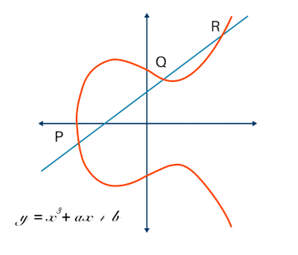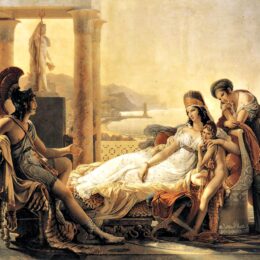In the margins of his copy of arithmetica, Fermat proposed that the equation xn + yn = zn had no positive integer solutions of x, y and z for n > 2, and claimed to have discovered a proof for this. Yet, to the dismay of mathematicians for centuries to come, he proceeded to write ‘I have a truly marvellous demonstration of this proposition which this margin is too narrow to contain’.
After his death, the written proof was not found anywhere among his belongings and, while the individual case n = 4 was proven by Fermat himself and proofs for n = 3, 5 and 7 were also found over the next two centuries, a general proof for n > 2, as Fermat claimed to have found, remained undiscovered. More puzzling was the fact that he had made many such propositions over his lifetime, similarly without proof; while every single one of these claims was eventually proven and verified, only a proof for xn + yn = zn remained undiscovered, and hence became known as ‘Fermat’s last theorem’.
Following the advent of technology in the 20th century, computers were able to prove that the theorem held for thousands more specific cases of n, but a general proof remained elusive. A general proof would have to come about mathematically.
The final proof was a culmination of many theories, starting in 1955 with the Taniyama-Shimura conjecture, later known as modularity theorem. This conjecture proposes a hypothetical link between elliptical curves and modular forms, specifically that modular forms are alternative representations of elliptical curves. While seemingly unrelated to Fermat’s last theorem, it would turn out to be the crux of the proof, although this would not become apparent until three decades later. For the moment, although much evidence had been gathered in support of it and its consequences had been explored in many papers, a proof of the Taniyama-Shimura conjecture was considered untouchable with current techniques.

The next breakthrough would occur 20 years later, in 1975. Yves Hellegouarch realised that if Fermat’s last theorem was incorrect, this would mean there existed a set of solutions that could be used to form an elliptic curve. By using hypothetical solutions a, b and c, he formed a corresponding elliptic curve of the form y2 = x(x – an)(x + bn) and seven years later, Gerhard Frey used this curve – later named a Frey curve – to link Fermat’s last theorem and the Taniyama-Shimura conjecture. If it were proven that the Frey curve could never be modular, this would contradict the Taniyama-Shimura conjecture, resulting in the conclusion that such a curve could not exist and proving Fermat’s last theorem correct by contradiction.

In 1985 Jean-Pierre Serre attempted to prove that the Frey curve could never be modular, but the proof was incomplete, and the missing part was named the epsilon conjecture. The full proof was discovered in 1986 by Kenneth Ribet and concerns Galois representations of elliptic curves, of the form ρ(E, p). The later renamed ‘Ribet’s theorem’ demonstrated that a curve cannot be modular if its Galois representation exhibits certain specific properties, ultimately proving that the Frey curve could never be modular. While all the components for a complete proof of Fermat’s last theorem seemed to be in place, even after the attention garnered by Frey’s work, the Taniyama-Shimura conjecture still appeared impossible to prove. Ribet himself stated that he was ‘one of the vast majority of people who believed [it] was completely inaccessible’.
But not everyone was so easily dissuaded. When Andrew Wiles, a mathematician experienced in elliptic curves, heard that the epsilon conjecture had been solved, it reignited his childhood interest in Fermat and he spent the next six years attempting to prove the Taniyama-Shimura conjecture for semi-stable elliptic curves. This would only be a partial proof of the conjecture, but enough to account for the category of curves that the Frey curve was classified into. To do this, Wiles used something called modularity lifting: using proof by induction he demonstrated that if the Galois representation, ρ(E, p), of a semi-stable elliptic curve, E, is modular for a prime p > 2, then E itself is modular. Using this new technique, Wiles was able to prove that all semi-stable elliptic curves are modular, ending up with the following (simplified) proof:
Assume that Fermat’s last theorem is incorrect and that the equation xn + yn = zn has at least one set of positive integer solutions x, y, and z for n > 2. We can use this equation to set up a semi-stable elliptic curve. Using Ribet’s theorem, it can also be shown that this curve is never modular. However, according to modularity theorem, a curve cannot be elliptic and lack a modular form. This is a contradiction and leads to the conclusion that Fermat’s last theorem is in fact correct.
With this proof, Fermat’s last theorem seemed to have been solved. However, upon peer review, it was found that his proof of modularity lifting contained an error that resulted in a gap in his logical framework. While the rest of it was still valid and a great advancement towards a complete proof, Wiles refused to publish, opting instead to work alone at first, and later with his former student Richard Taylor, to resolve the flaw. After almost a year of work, Wiles was able to correct this using Iwasawa theory, and he published his final proof: “Modular elliptic curves and Fermat’s Last Theorem” as well as “Ring theoretic properties of certain Hecke algebras” which he used to justify his corrected working. This new proof was analysed and accepted by the wider mathematical community; Fermat’s last theorem had a generalised proof, after more than 350 years.
This proof represented the triumph of innovation and tenacity against the seemingly impossible, and each of the underlying proofs and techniques developed to solve it were all major advancements in their own right: in particular, Wiles’ proof of the Taniyama-Shimura conjecture for semi-stable curves paved the way for the complete proof, published in 2001 which was a significant breakthrough in number theory. It demonstrated a link between modular forms and elliptical curves, two key topics within number theory, meaning that analytical techniques could be shared between the two, allowing for further insights into each. It also proved a special case of Birch and Swinnerton-Dyer conjecture, another significant but currently unproven problem within mathematics. Wiles’ modularity lifting theorem was another major step for mathematics and has continued to be widely used and developed, as well as furthering the progress of the Langlands program, which seeks to connect Galois groups and automorphic functions.
Although the theorem now has a proof, one mystery remains. Wiles’ proof is dependent on modularity theorem, which would not be conjecture for centuries after Fermat’s death. This raises the obvious question: what was Fermat’s proof? There are still people who believe Fermat had found such a cunning and innovative proof that it still eludes us. Yet, given the absence of any records from Fermat himself and the considerable amount of work and collaboration it took for the rest of the world to find a proof, most mathematicians nowadays believe that either his proof was flawed, or that he never found a one to begin with.



